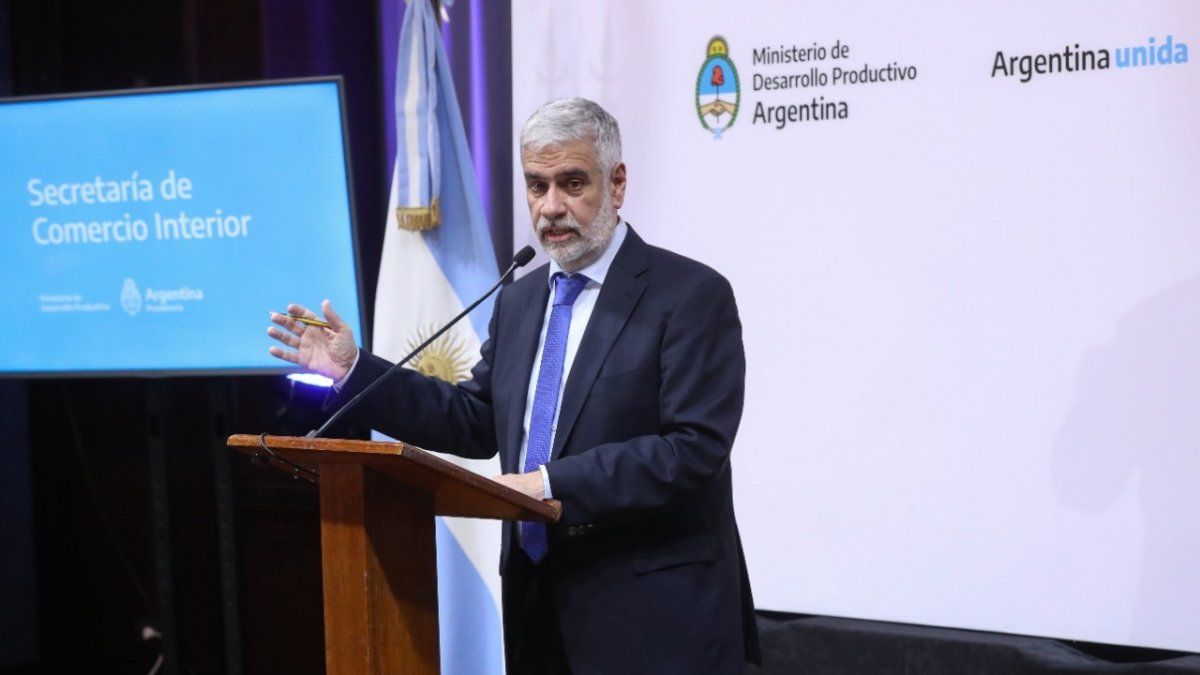The new programs of Feletti’s management in the Ministry of Productive Development will seek to be in force from this Thursday. As for bringing Care Prices to nearby businesses, last Friday there was a meeting between Feletti and the wholesalers, given that it is the place where local businesses are supplied, as they do not have direct contact with food companies. “There was an agreement and they left satisfied”Feletti told Radio Futurock.
This Monday there will be a meeting with Chinese stores and supermarkets to close the list of prices at which they will buy from wholesalers and then sell to the public. “I had direct contact with the President, Alberto Fernández is very interested in this being put into operation this program, ask for information and also results. I also raised the issue of withholdings,” Feletti said.
The Secretary of Internal Trade is convinced that the only way to avoid the transfer to domestic prices of the unprecedented rise in commodities is via an increase in the retentions of wheat, corn and sunflower, which had strong increases because Ukraine is one of the main suppliers of these foods. “Kulfas supported my withholding proposal”Feletti said. In any case, within the economic team they will not advance because they cannot pass the project through Congress.
The other program that they will seek to put into operation starting this week is a basket of regulated prices for fresh produce: there will be 4 vegetables and 1 fruit. In principle, they will be in supermarkets and wholesalers, and they will look for how to get to fairs and nearby businesses in the Greater Buenos Aires, in a dialogue that Feletti leads with the mayors. In January and February, the rise in seasonal rates had a strong impact on the inflation number. On Wednesday, April 13, a week after these programs are put into operation, Indec’s March inflation data will be published, which consultants estimate close to 6%.
Fines and new laws?
After the presidential announcement of the “war against inflation”, the prices in gondola rose 14% on average, detected the Secretary of Domestic Trade based on its own survey. A week ago, the deadline for 1,700 products to bring prices back to the values of the beginning of March was met. So far, the food companies have done so in 1,100 products, and another 600 still remain.
In some cases, these increases will be validated, due to the rise in costs, as is the case of mayonnaise, where sunflower oil, an export product from Ukraine, had an exponential rise. “We ask you to slow down that rise, but for sunflower we have a retention of 7%, when in 2015 it was 28%, these are things to review,” Feletti said. But for the other products, the Secretariat asked them to see the costs.
When asked if there could be sanctions, such as fines or charges, Feletti replied: “I do not anticipate measures, I take them, but yes, there may be. We are in a permanent day to day of tension”. For this punctual negotiation of prices, Feletti affirmed that the tools that the State has “are useful”, such as the law of supply or defense of competition. “If you ask me if I would present an antitrust bill, I would tell you that it would probably have to be discussed. But today the laws we have for these kinds of problems are enough,” he added.
As an example of the so-called “monopolistic inflation” he referred to the diffused inputs of the industry. Such was the case with the pasta chains, to which they assured the purchase of subsidized flour with the wheat fund, and the merchants’ response was that they had strong increases in supplies such as cardboard.
Source: Ambito
David William is a talented author who has made a name for himself in the world of writing. He is a professional author who writes on a wide range of topics, from general interest to opinion news. David is currently working as a writer at 24 hours worlds where he brings his unique perspective and in-depth research to his articles, making them both informative and engaging.




